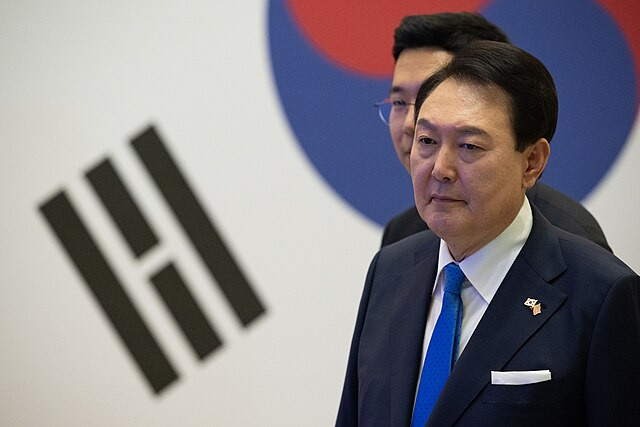As interest rates rise, more South Korean companies are finding themselves unable to repay their debts.
According to a financial stability report released by the Bank of Korea on Thursday, the proportion of "zombie" companies in South Korea, those unable to cover their interest expenses with operating profits, rose from 37% at the end of last year to 44.8% in the first half of the year, marking the highest level on record.
This year, South Korea's overall exports have been sluggish. Coupled with the Bank of Korea's prolonged high-interest rate policy, borrowing costs have risen, causing significant distress to South Korean enterprises.
To combat high inflation, the Bank of Korea raised its base interest rate by a cumulative 300 basis points from August 2021 to January 2023 and has since maintained it at 3.5%, the highest level since 2008. Markets generally expect that the Bank of Korea is unlikely to hike rates further and will maintain the current rate for some time, striving to bring the inflation rate down to the 2% target.
Bank of Korea Governor Lee Chang-yong said last week that inflation remains far above the target level, and the pace of price declines is slower than expected, making the final mile to achieve the inflation target more challenging.
The report also indicated that corporate debt in South Korea reached a record 125.6% of GDP last quarter. In contrast, household debt to GDP ratio slightly decreased to 101.4%.
Overall, large corporations are faring much better, with 31% having an interest coverage ratio below 1. Meanwhile, about 59% of small and medium-sized enterprises still struggle to pay interest with profits.
In related news, South Korean construction firm Taeyoung Construction has applied for corporate restructuring due to a liquidity crisis caused by financing real estate projects. South Korean presidential office officials stated that the government, through the financial sector leadership meeting, conducted a comprehensive assessment of Taeyoung Construction and will take all feasible measures to control its financing debt risks and maintain market stability.
Reports indicate that Taeyoung Construction, ranked 16th in construction capacity in South Korea, is facing a potential chain of financial crises due to poor management of real estate project financing following its application for restructuring.






